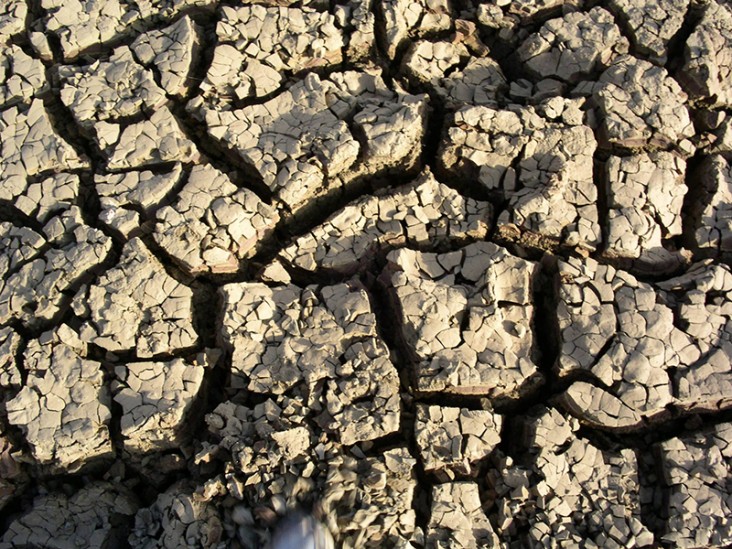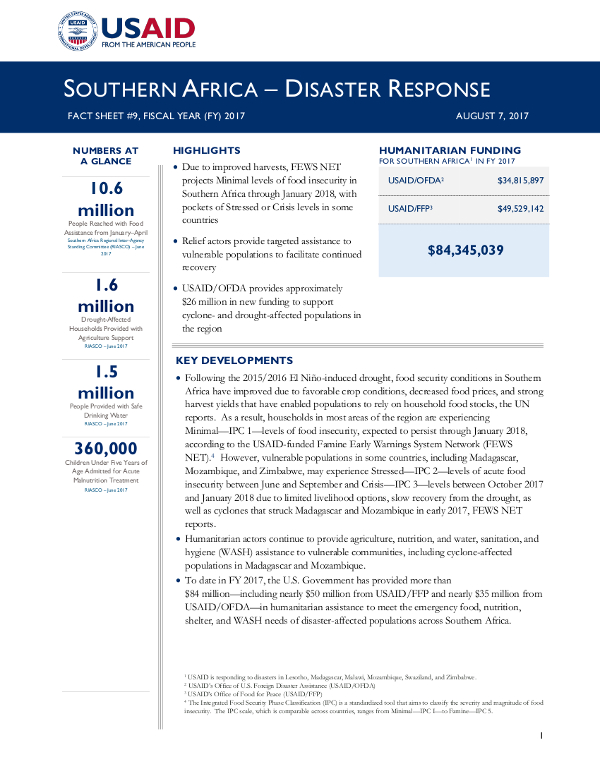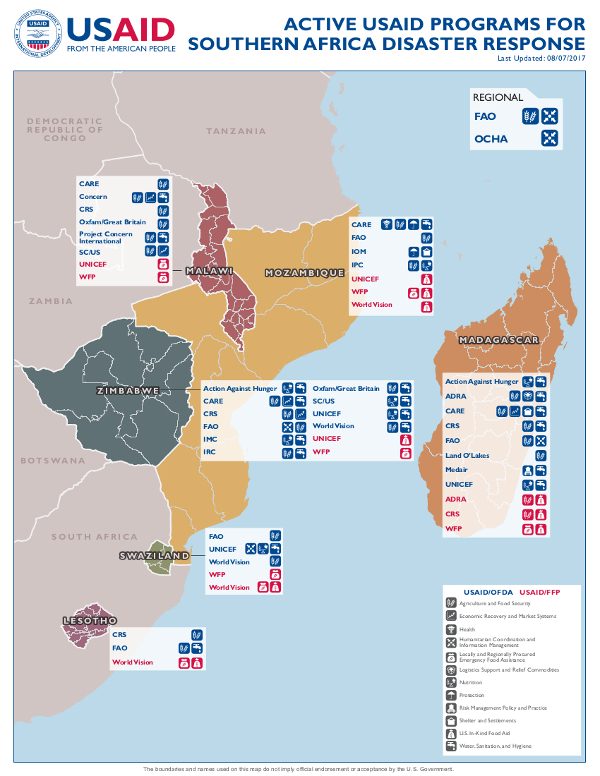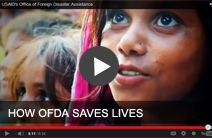- What We Do
- Agriculture and Food Security
- Democracy, Human Rights and Governance
- Economic Growth and Trade
- Education
- Ending Extreme Poverty
- Environment and Global Climate Change
- Gender Equality and Women's Empowerment
- Global Health
- Water and Sanitation
- Working in Crises and Conflict
- Disaster Assistance
- Political Transition Initiatives
- Conflict Mitigation and Prevention
- Countering Violent Extremism
- Disaster Risk Reduction
- Peacebuilding and Reconciliation
- Providing Safe & Secure Environments for Development
- Recovering From Crisis
- Resilience
- Tech Challenge for Atrocity Prevention
- World Humanitarian Day
- U.S. Global Development Lab

Latest Southern Africa Fact Sheet
Southern Africa Map - 08-07-2017 ![]() (pdf - 599k)
(pdf - 599k)
Key Developments
USAID’s Office of U.S. Foreign Disaster Assistance (USAID/OFDA) is responding to disasters in Lesotho, Madagascar, Malawi, Mozambique, Swaziland, and Zimbabwe.
The UN Food and Agriculture Organization reports that food security conditions in Swaziland will likely improve during the 2017/2018 agricultural season, as improved weather conditions are expected to result in increased maize and livestock production and lower food prices. However, nearly 140,000 people in Swaziland, primarily in Lubombo and Shiselweni regions, will likely continue to experience Crisis—IPC 3—and Emergency—IPC 4—levels of acute food insecurity through September and are expected to require continued humanitarian assistance.
USAID's Office of U.S. Foreign Disaster Assistance (USAID/OFDA) is responding to a regional drought in Southern Africa. Please visit our webpage for additional information.
Background
Swaziland experiences erratic rainfall, recurrent droughts, and soil degradation, which can adversely impact food security. In addition to responding to urgent humanitarian needs, USAID/OFDA supports interventions to build the capacity of people in Swaziland to withstand disasters. For example, USAID/OFDA has supported programs to help mitigate the impacts of climate shocks by improving access to water and promoting conservation agriculture methods and holistic grazing land management.










Comment
Make a general inquiry or suggest an improvement.